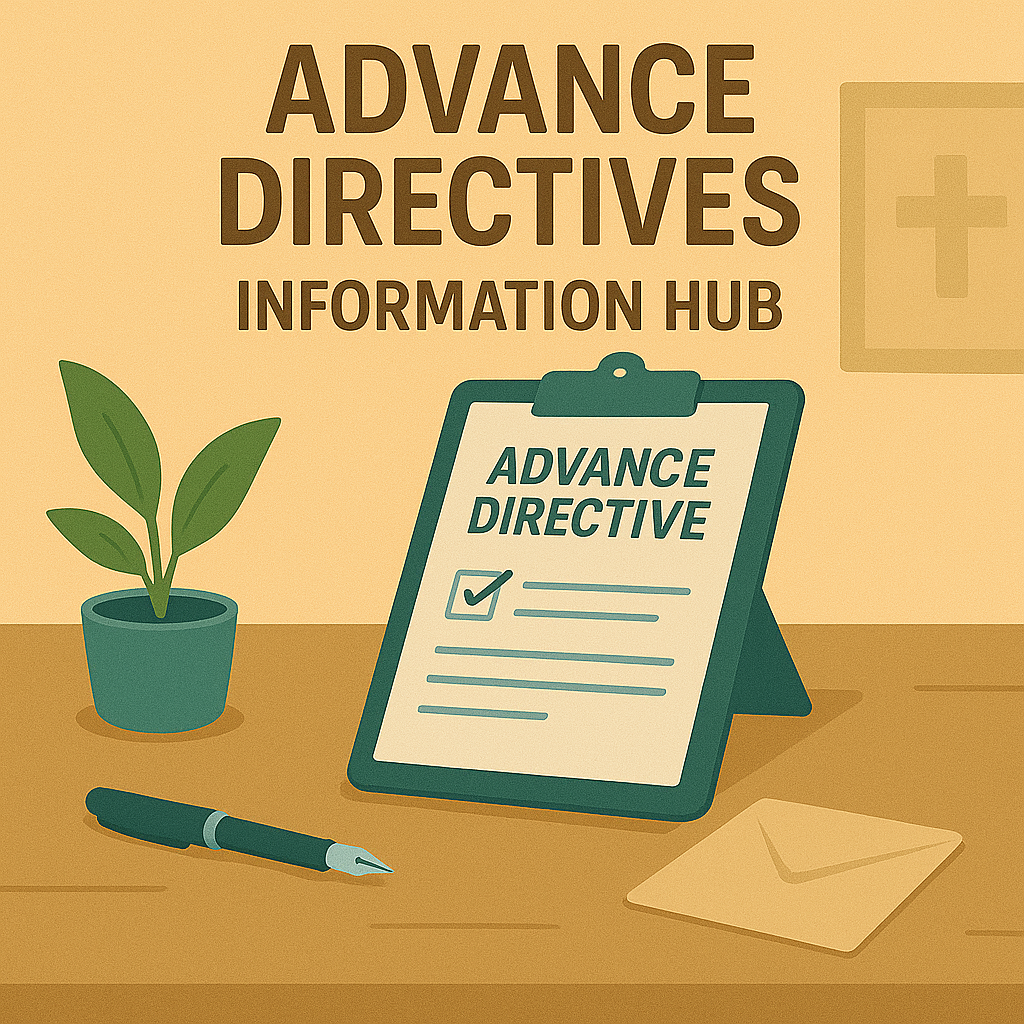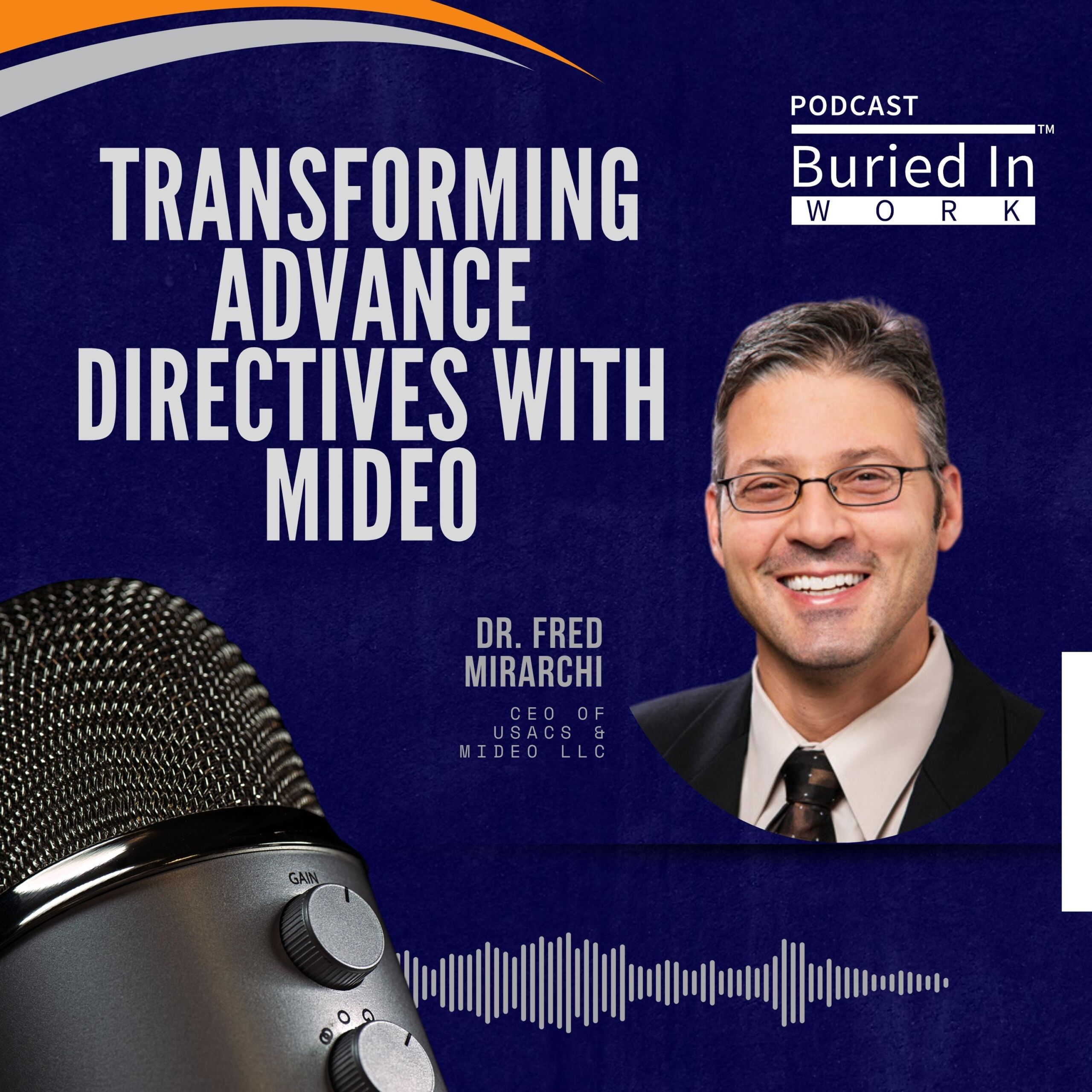When You Can’t Advocate For Yourself
advance directives information Hub
Plan for the unexpected so others aren’t left guessing. Advance directives are legal documents that let you clearly state your medical preferences if you’re ever unable to speak for yourself. From choosing a healthcare proxy to outlining treatment wishes, this page will walk you through what you need to know to take control of your care… before a crisis hits.
Key Things To Know
Advance Directives are legal documents that let you spell out your preferences for medical care if you're ever unable to speak for yourself, helping ensure your wishes are respected and easing the burden on loved ones.
- Understand what an Advance Directive is: It typically includes a Living Will and a Health Care Power of Attorney, helping guide medical decisions if you can't speak for yourself.
- Know the difference between a Living Will and a Health Care Proxy: A Living Will outlines your treatment preferences, while a Proxy designates someone to make decisions for you.
- Choose a trusted person to make decisions: This is your agent or proxy—someone who understands and will honor your wishes.
- Clearly define your wishes for life-sustaining treatments: Think about interventions like CPR, ventilators, and feeding tubes, and whether you’d want them.
- Decide your preferences on pain management and comfort care: You can specify how you’d like to be kept comfortable, even if curative treatments are stopped.
- Consider including organ and tissue donation preferences: You can express your wishes here, even if you’re also registered as a donor elsewhere.
- Make sure the document meets your state’s legal requirements: Some states require specific forms, witnesses, or notarization.
- Share copies with your agent, doctors, and close family: This ensures the right people have access if an emergency happens.
- Keep a copy in an easily accessible place: Let loved ones know where to find it when it's needed most.
- Review and update your Advance Directive regularly: Especially after major life events like a new diagnosis, marriage, or divorce.
- Talk with your loved ones about your values and wishes: Conversations now help avoid confusion or conflict later.
- Consider also completing a POLST or MOLST form: These are medical orders for people with serious illness or advanced age and work alongside your Advance Directive.
Create Your Advance Directives
Create Advance Directives With An Online Service
Online services offer a convenient and efficient way to create advance directives. These platforms guide you through the process with easy-to-use templates and step-by-step instructions, ensuring that your documents are legally sound and tailored to your specific needs.
Create Advance Directives With An Attorney
Working with a lawyer to create your advance directives ensures that your documents are comprehensive, legally sound, and tailored to your unique circumstances. An experienced attorney can provide personalized advice, address complex situations, and help navigate any specific state laws and requirements.
This option is particularly beneficial for individuals with intricate medical preferences or family dynamics. By collaborating with a lawyer, you can have peace of mind knowing that your healthcare wishes will be clearly articulated and legally enforceable, providing the best protection for your future healthcare decisions.
Create Advance Directives On Your Own: Do-It-Yourself
Creating your own advance directives is an accessible and cost-effective option, especially for those with straightforward medical preferences and clear instructions. Many resources, including online templates, guides, and books, can help you draft these important documents on your own.
However, it’s crucial to ensure that your advance directives comply with all legal requirements in your state to ensure they are honored when needed. Properly executed advance directives can provide peace of mind, knowing that your healthcare wishes will be respected even if you are unable to communicate them yourself.
Articles
Frequently Asked Questions
Advance Directives are legal documents that let you spell out your preferences for medical care if you're ever unable to speak for yourself, helping ensure your wishes are respected and easing the burden on loved ones.
Disclaimer: The information provided on this website and by Buried in Work is for general informational purposes only and should not be considered legal advice. Please consult with a qualified attorney or subject matter expert for advice specific to your situation.





